An HSJ roundtable sponsored by Shire brought together experts to ask whether the NHS was taking advantage of all the factors that could improve outcomes for patients with rare diseases. By Alison Moore
One in 17 people in the UK has a rare disease. For some of them it will mean a long struggle to get a diagnosis, to be referred to a doctor who specialises in their condition, and then to get the optimal treatment and medicines if any are available.

Advances in genetic testing, earlier diagnosis, better care and more tailored medicines all hold out the prospect of improved outcomes for these groups. But is the NHS taking advantage of the opportunities these advances offer?
An HSJ roundtable brought together clinicians specialising in rare diseases, representatives from the pharmaceutical industry and patient groups to look at some of the current barriers to improving outcomes and what could be done to overcome them.
This roundtable was funded by Shire, which had a representative on the round table panel. However, editorial control remained with HSJ.
A number of hurdles
For many panellists, the position in England is already deeply concerning despite the publication of a UK wide rare diseases strategy in 2013. It is a struggle to get new services commissioned by NHS England and new medicines for those with rare diseases face a number of hurdles before they are approved for funding.
For patients the issues can range from slow diagnosis through struggling to get referral into the right service or to the right specialist and then a difficult transition from child to adult services
These processes can take years and the outcome can be uncertain – which will inhibit investment by pharmaceutical companies looking to develop new medicines. For patients the issues can range from slow diagnosis through struggling to get referral into the right service or to the right specialist and then a difficult transition from child to adult services – a point at which many get “lost”.
Many patients will first come into contact with their GP, who can be important in diagnosing and referring them onto the right service. However, chair of clinical innovation and research at the Royal College of GPs Imran Rafi said there were issues with the current workforce in general practice, which might affect the care for people with rare diseases.
The panel
Dr Claire Hogg, paediatric respiratory consultant, Royal Brompton and Harefield Foundation Trust.
Dr Ian Frayling, Royal College of Pathologists representative, consultant in genetic pathology and clinical genetics at Cardiff and Vale, and member of the rare disease group, UK Genetic Testing Network
Dr Trevor Cole, representing the British Society for Genetic Medicine and the Academic Health Science Network, a consultant in clinical genetics at Birmingham Women’s Hospital FT
Dr Imran Rafi, chair of clinical innovation and research at the Royal College of General Practitioners
Dr Larissa Kerecuk, rare disease lead at Birmingham Children’s Hospital FT
Alastair Kent, director of Genetic Alliance UK and chair of Rare Disease UK
Ed Owen, head of engagement and communications with the Medicines Discovery Catapult and former chief executive of the Cystic Fibrosis Trust
Sebastian Stachowiak, UK and Ireland general manager of Shire and chair of the Association of British Pharmaceutical Industries rare disease strategy group
Mike Ringe Association of the British Pharmaceutical Industry NHS strategy and access manager
Maria Bitner-Glindzicz, professor of clinical and molecular genetics at the Institute of Child Health and Great Ormond Street Hospital for Children FT
Dave West, HSJ senior bureau chief – chair
The need for getting timely and accurate diagnosis – and what happens when patients cannot get that – was a concern for many panellists.
Dr Ian Frayling, representing the Royal College of Pathologists, said patients who did not get a diagnosis were often left to “wander through the system using up resources”. Consultant in clinical genetics at Birmingham Women’s Hospital Foundation Trust Trevor Cole said the challenge was “just identifying patients so they can get to the appropriate place”.
Even though testing for rare diseases can sometimes be expensive, Dr Frayling pointed out some of the potential benefits of early identification, including the economic case. Testing can identify bowel cancers caused by Lynch syndrome, a hereditary condition that predisposes people to a number of cancers.
This can allow affected family members to then take action – such as increased surveillance – to prevent them presenting with advanced cancer.
The National Institute for Health and Care Excellence is expected to recommend all bowel cancer patients are screened for Lynch syndrome but uptake could prove to be patchy, as was the case under previous guidance. While such testing would be justified on overall health economic grounds, funding for testing comes from specific funding pots and the bigger financial picture is not seen.
He suggested there was a particular problem around taking action on issues like this in England where health ministers were “detached” from NHS England. “There are layers of protection that protect them from doing anything… what it needs is someone to say, ‘This will be done,’” he added. “It brings the whole thing into disrepute when we determine that something is cost effective but you can’t bring it in.”
The treatment dilemma
For those whose rare condition is identified and they are referred for more specialist care, they can still face further hurdles in getting the best treatment. Trusts find it can be a battle to get commissioners – usually NHS England – to agree to fund new services.
Registries of patients with rare diseases were needed. This could allow quicker uptake of new treatments
Dr Claire Hogg, a paediatric respiratory consultant at the Royal Brompton Hospital, said a current challenge for her services was getting an adult primary ciliary dyskinesia service commissioned to “close the loop” for patients who had been seen in paediatric clinics.
Alastair Kent, chief executive of the Genetic Alliance UK, pointed out that implementation of the UK-wide rare disease strategy was the responsibility of the devolved governments. “In England, just the sheer complexity and the time it takes to get anything to happen is actually a massive problem in engaging with the improvement of services,” he said.
He pointed out that the weekend before the roundtable, NHS England had issued a press release saying it would routinely commission a number of interventions for rare diseases. Yet this had come almost three quarters of the way through the financial year when such decisions should have been made a year previously.
“We can have very little confidence that in the next three months they will get their act together about what they want to commission for 2017-18,” he said.
Birmingham Children’s Hospital FT has recently set up a paediatric rare disease centre, the first in the country. Patients with rare diseases often have multiple appointments to see different people, and could sometimes become the contact between teams of healthcare professionals, said Dr Larissa Kerecuk, a paediatric nephrologist who heads the new centre.
The centre will aim to introduce a more integrated and coordinated approach with “one stop” shops for patients. It had been developed with patients and their families – children were asked to identify what was “tops” about their experience and what was “pants”.
Promising therapies
While many patients with rare diseases are treated in specialist centres, some are not – and in some cases will not be known to specialist centres. Registries of patients with rare diseases were needed, suggested Dr Kerecuk. This could allow quicker uptake of new treatments.
Shared information across NHS organisations may need to improve to enable this, suggested Maria Bitner-Glindzicz, professor of clinical and molecular genetics at the Institute of Child Health and Great Ormond Street Hospital for Children FT. “Where is the electronic patient record?” she asked. “Once a treatment becomes available how are we going to identify the patients? Some are in specialist centres but not all of them.”
But hospitals’ computer systems often did not talk to each other – to the astonishment of patients and their parents who could not believe such information was not routinely shared and teams of clinicians did not have access to it.
These problems come against a background of very promising therapies being developed in areas such as cystic fibrosis. Former Cystic Fibrosis Trust chief executive Ed Owen, who now works for the Medicines Discovery Catapult, an independent organisation set up to drive the development of new treatments, said it was important to involve those with these conditions at an early stage of drug development.
The funding issue
The position around assessment and adoption is equally frustrating for the pharmaceutical industry. New treatments can end up going down several different assessment routes before they are approved for NHS funding. Some of these are run by NICE, some by NHS England using its system of clinical reference groups and an overarching clinical priority advisory group, and some are funded at clinical commissioning group level.
It’s disjointed, it’s fragmented and no one knows how it is supposed to fit together
The differing processes often require different evidence and have differing criteria – including cost effectiveness.
“It’s disjointed, it’s fragmented and no one knows how it is supposed to fit together,” said Mike Ringe, NHS strategy and market access manager at the Association of British Pharmaceutical Industry.
“Companies invest long term and they need to know with some certainty what information do they need to collect from clinical trials in order [for their products] to be assured appropriately and implemented,” he said. Some medicines could be passed between different assessment regimes and be repeatedly considered for funding – but not necessarily get it, he added.
Sebastian Stachowiak, UK and Ireland general manager of Shire who chairs the Association of British Pharmaceutical Industries Rare Disease Strategy Group, said his company – a world leader in rare disease medicines – has a pipeline of 45 products, including over 30 for rare diseases, of which seven would launch in the next 18 months.
“I see a country where we have one of the lowest uptakes for new innovative medicines and the slowest uptake when we benchmark against other countries. That is a huge challenge.”
Mr Stachowiak said the pharmaceutical industry was getting mixed messages, on one hand being referred to as the “jewel in the crown” by the prime minister, while on the other it had to meet all these affordability hurdles.
He highlighted the position with orphan drugs [those designed for rare diseases] where only half of those approved in a Europe-wide regulatory/licensing process had been given the go ahead for funding in England and that approval had taken an average of 28 months. England was far behind some other European countries in take up on this, he added.
“The very nature of orphan drugs means there is often nothing else available for these patients,” he said. “If 50 per cent of products never become available, 50 per cent of patients never get treated.”
What needs to be done
What could be done to improve care within this system? Chair and HSJ senior bureau chief Dave West summed up the feeling round the table as there being little confidence that the situation would be improved, given policies in place at the moment. The system as it stands can be confusing and opaque for both the pharmaceutical industry and those trying to get a service commissioned.
Incremental changes could smooth the system slightly
Mr Kent said: “We can’t understand the process. I don’t think anyone understands it, least of all the people who are in charge of implementing it.”
But there were suggestions for incremental changes that could smooth the system slightly. One was around coordination: Dr Cole suggested that the NHS England clinical reference groups needed to talk to each other more and coordinate when sending through advice to the clinical priorities advisory group.
Clarity around existing processes could also help. For example, the NICE highly specialised technology process only reviews a handful of treatments a year. “How do they choose?” said Mr Kent. “Do they slaughter a chicken and look at its liver?” Both providers and industry ought to be involved in looking at what areas are priorities for treatment under the highly specialised technologies process and what was on the horizon, he said.
There is also a need to utilise expertise within the system, said Dr Hogg. In the past there had been knowledgeable teams involved in commissioning and a known process for decision making, she said.
“Now it is absolutely extraordinary. We have a bid in [to provide a service] where we got ministerial sign up 18 months ago. They [the NHS England commissioners] have now come back and are going through another consultation process. The next thing that happens is they go to management consultants for decision support! Then the consultants ring me and ask me. Why doesn’t NHS England call me themselves?”
She had now been told it might take another two years for the service to be commissioned and even at that point, a tendering process would have to be gone through, which would take a year.
Often clinicians have to find ways round the complex commissioning system to bring in improvements. For example, in Birmingham the rare diseases centre will aim to deliver better coordinated care, Dr Kerecuk said. In some disease areas, shared guidelines and a shared care network involving primary care clinicians could help.
Mr Owen said that a more collaborative approach to commissioning for cystic fibrosis was in place in some areas but this was due to dedicated professionals making it happen. Leadership was vital in improving the situation, he suggested, especially as care for many patients with rare diseases involved some locally commissioned services and some specialised commissioned services.
“Some one – some institution – some part of the service has to take the lead,” he said, although who was best placed to do so would vary between diseases.
But, while clinical leadership and collaboration would help, there is still a fundamental underlying problem. Dr Frayling said: “It is as if the planning and overall structure of the NHS works on a Newtonian scale but not on a quantum level with rare diseases – it needs to be thrown out. It is as if the whole system has been designed not to deliver what is needed.”
Mr Stachowiak added: “The system is so broken it needs a complete overhaul. Cystic fibrosis is a success story but I know the struggle you went through and the industry went through to get those products available.”
In one case, a medicine that would benefit around 300 people receiving treatment in 10 centres in England, had recently missed out on assessment under the NICE-run HST process and was being shifted to the standard technology assessment. This has a different cost effectiveness threshold that is not suitable for rare disease treatments, where the cost of development is spread over relatively few patients.
Working together in a collaborative way, they can remove the bubbles in the pipe
Assessment under the standard technology route means the medicine is unlikely to demonstrate cost effectiveness and get funding. The approach used for oncology – the cancer drugs fund, where there is limited evidence of cost-effectiveness of the product required for initial funding – might offer a better way of getting new products for rare diseases approved and into use, he suggested.
There are some drivers of change already in the system that could improve the situation. Some larger geographical health economies could take some commissioning powers themselves – the Greater Manchester devolution, for example, would cover a population that had “critical mass” in terms of commissioning for some rare disease treatments while individual system and transformation plan areas might be too small.
An evidence base for the cost effectiveness of services for rare diseases is also being developed. “We are getting there such that we can actually show that a treatment does save money and does help patients,” said Dr Keracuk, while Dr Hogg pointed out that sometimes presenting a solution to commissioners could lead to services being given the go ahead.
Dr Frayling said in some cases individual chief executives could be very good at overcoming the restrictions of “silo” budgeting and giving the go ahead for costly testing. Strategic leadership around some of these diseases was needed to put pressure on the centre, added Mr Owen – The Medicines Discovery Catapult was putting together syndicates around diseases.
“Working together in a collaborative way, they can remove the bubbles in the pipe,” he suggested. “There is an onus on us in different areas to get together and work out what the solutions are.”
There might also be opportunities to use savings in other areas to improve access to treatments.
“The NHS budget is always completely spent. There’s no pot of £10m down the back of Simon Stevens’ sofa. But that does not mean there is no money,” said Mr Kent, pointing to the recent Association Of Medical Royal Colleges’ list of procedures that do not have any clinical benefit and projected savings if purchasing was improved.
“The solutions are there and we have to find a way to make it happen.”
Finally, Mr Ringe questioned what was happening over implementation of the rare disease strategy in England. “The UK rare diseases strategy is about patients. We should be holding the system to account saying it came out in 2013, it is now 2016 and it finishes in four years. What has happened?
“There is a real sense of urgency that we need now. This is about the future of medicines. We are going to do a disservice to future patients unless we can urgently make a difference.”
How can we improve outcomes for patients with rare diseases? Wish list from our panel:
- More engagement by NHS England and NICE
- Greater leadership on rare diseases within NHS England
- Registries to identify patients with rare diseases and their outcomes
- Because of the small numbers with some rare diseases, international collaboration on developing guidance could be helpful
- Leadership within organisations is key to breaking down barriers – such as testing coming out of one budget and benefits from it accruing in others.
- New approaches across health economies
- Overhaul of the way rare diseases treatments are commissioned and assessed
- Clarify process for assessing new treatments to give more certainty to pharmaceutical companies
Topics
- BIRMINGHAM CHILDREN'S HOSPITAL NHS TRUST
- BIRMINGHAM WOMEN'S NHS FOUNDATION TRUST
- Commissioning
- Finance
- GREAT ORMOND STREET HOSPITAL FOR CHILDREN NHS FOUNDATION TRUST
- Innovation
- Leadership
- National Institute for Health and Care Excellence (NICE)
- Pharma
- Primary care
- Royal Brompton & Harefield NHS Foundation Trust
- Simon Stevens




















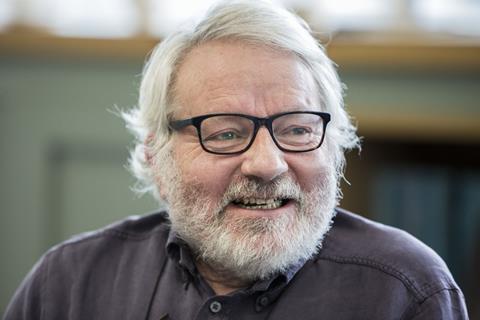
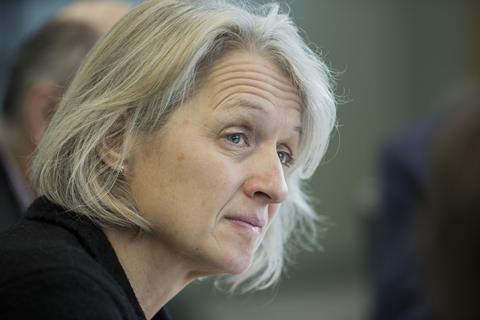
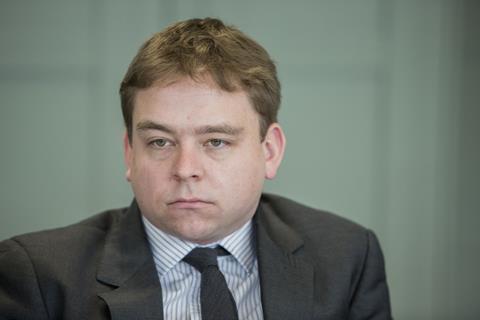
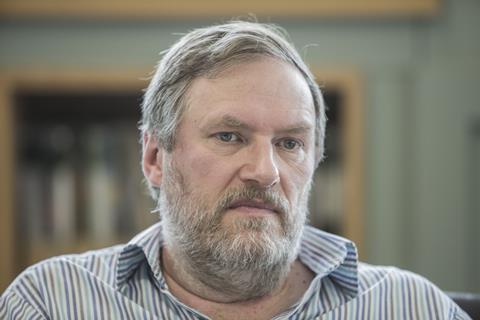
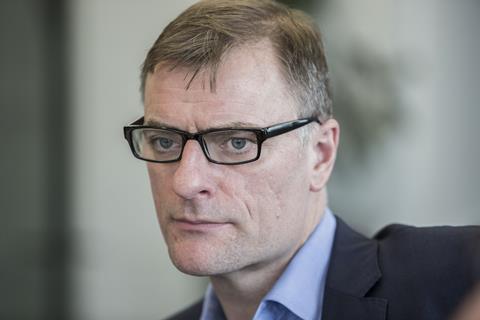
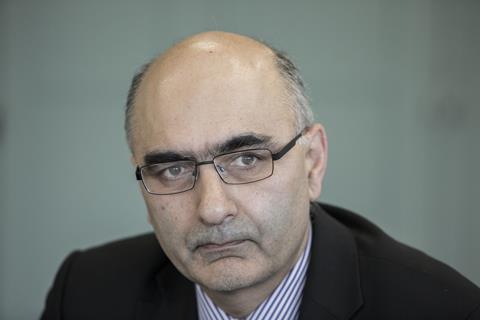
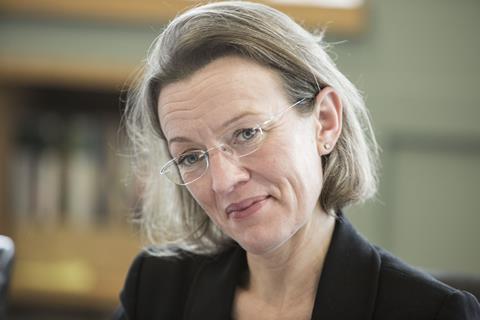
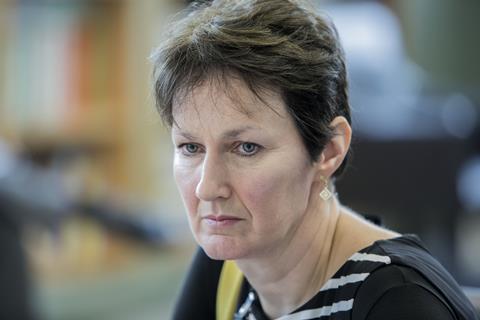
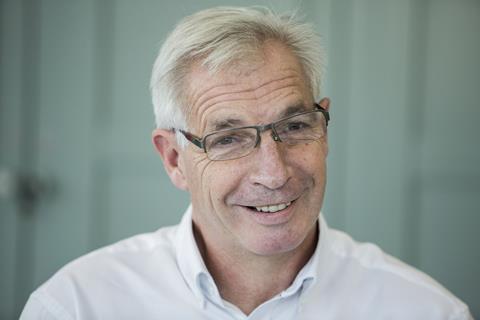
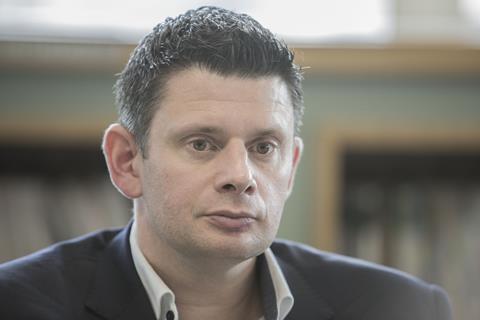
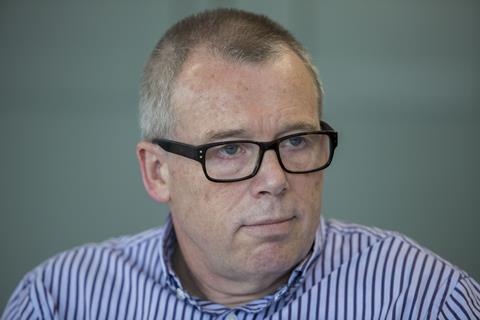






No comments yet